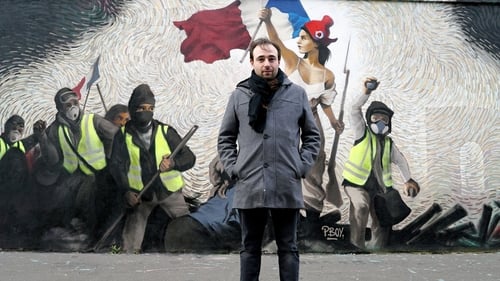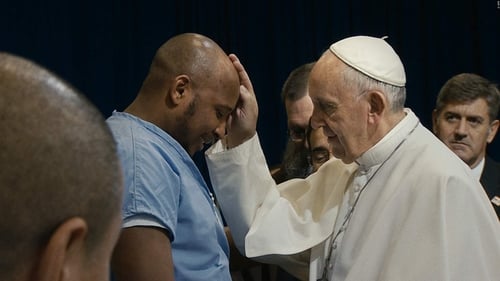Recep Tayyip Erdoğan
Nascimento : 1954-02-26, Istanbul, Turkey

AK Parti Kurucu Üyesi

Self (archive footage)
After twenty years in power, Vladimir Putin continues to implement his geopolitical strategy with Russia’s comeback on the big stage of world politics. He already announced his ambitions in 2007 – and still, it seems like the western governments were hit completely unprepared. What is behind this repeat of the Cold War?

Self (archive footage)
The night of July 15, 2016 changed the history of Turkey. On that day there were coordinated attacks by parts of the Turkish army, among others in Istanbul. The aim of the military: a coup against the government. The decisive confrontation occurred on the Bosporus Bridge. While President Erdogan was still on vacation, live at TV he called on the people who were devoted to him to stand against the military. As an enemy for the masses, he presented his adversary Fethullah Gülen, whom he branded as the coup leader. He also urged the imams of the country's mosques to condition the population to resist. And so it happens that at night thousands of agitated people take to the streets to oppose the armed insurgents. The death toll was high. 352 people died across Turkey during the attempted coup. The consequences are even more serious: Erdogan used this gift, as he called it himself, to undermine democracy, to arrange mass arrests of dissidents and to transform Turkey into a dictatorship.

Himself (archive footage) (uncredited)
Journalist Jørgen Lorentzen was in Turkey when the coup attempt happened in 2016 and followed the event the whole evening. In the middle of the night one neighbour said: “This is not a real coup, I have experienced many coups and know what a coup is”. From that moment Lorentzen started the investigation of the event and its aftermath. This documentary is a critical analysis of the coup attempt in Turkey throughout the night between the 15th and 16th of July 2016.

Himself - Politician (archive footage)
Turkey's history has been shaped by two major political figures: Mustafa Kemal (1881-1934), known as Atatürk, the Father of the Turks, founder of the modern state, and the current president Recep Tayyıp Erdoğan, who apparently wants Turkey to regain the political and military pre-eminence it had as an empire under the Ottoman dynasty.

Self - Politician (archive footage)
Thoughts of a diversity of public and private citizens on the virtues of democracy, its faults, its decadence, its fall and the rise of populism.

Self (uncredited)
Em uma era de profunda descrença dos políticos e pessoas no poder, Papa Francisco é representado pelas suas muitas visitas espirituais pelo mundo e suas respostas às questões globais atuais sobre morte, justiça social, imigração, ecologia, desigualdade econômica, materialismo e o papel da família.

Self (archive footage)
Though both the historical and modern-day persecution of Armenians and other Christians is relatively uncovered in the mainstream media and not on the radar of many average Americans, it is a subject that has gotten far more attention in recent years.

Kurdistan, partitioned between Iran, Iraq, Turkey and Syria, could play a major role in a torn Middle East. But who are the Kurds? What influence do they have? Who exactly is Abdullah Öcalan, the leader of the Kurdistan Workers' Party? An enlightening investigation by Luis Miranda.

Himself
The opening ceremony of the 2014 Winter Olympics took place at the Fisht Olympic Stadium in Sochi, Russia, on 7 February 2014. It began at 20:14 MSK (UTC+4) and finished at 23:02 MSK (UTC+4) This was the first Winter Olympics and first Olympic Games opening ceremony under the IOC presidency of Thomas Bach. The Games were officially opened by President Vladimir Putin. An audience of 40,000 were in attendance at the stadium with an estimated 2,000 performers. The ceremony touched upon various aspects of Russian history, and included tributes to famous Russians, such as Peter Tchaikovsky (1840–1893), Ukrainian-born Russian humourist, dramatist, and novelist Nikolai Gogol (1809–1852), filmmaker Sergei Eisenstein (1898–1948), ballet dancer Vaslav Nijinsky (1889–1950), and patron of arts, and founder of Ballet Russes, Sergei Diaghilev (1872–1929).








